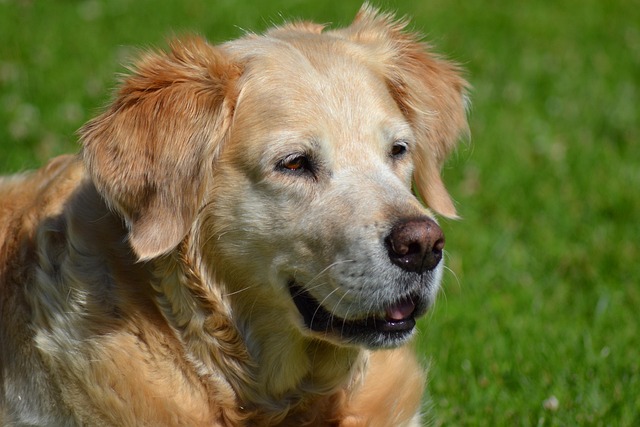
How do i train my dog to be obedient?
Watching your dog dart across the park ignoring your calls isn’t just frustrating—it can put them at risk near busy streets or public spaces.
I’ll open with a scenario every new U.S. dog parent of a reactive pup knows: You’re in your Chicago apartment, after another tough walk with your 10-month-old rescue Husky—he still lunged at a passing dog, even after weeks of positive training. You’re scrolling pet forums, wondering if you’re missing something, and a question pops up: Are there any specific diets for reactive dogs? Could what I’m feeding him be making his stress worse? This doubt is common—while diet isn’t a “magic fix” for reactivity, the right food can calm underlying stress and discomfort, making training easier. It’s not about “curing” reactivity with kibble, but giving your pup a body and brain that’s better able to handle triggers.
The science here is simple, no lab jargon needed: Reactivity is rooted in stress, and what your dog eats affects how well they manage that stress. Key nutrients like omega-3 fatty acids (EPA and DHA, found in fish oil or salmon) help regulate the brain’s stress response—they soften the “fight-or-flight” reaction by supporting nerve function. On the flip side, artificial additives (like BHA, BHT, or food dyes) can rev up anxiety—my Austin vet, who works with reactive dogs, explains: “These chemicals act like tiny stimulants for some pups, making them jittery and more likely to overreact to triggers. It’s like us drinking too much coffee before a big test—we’re more on edge.” Food allergies or sensitivities (to chicken, grains, or dairy) also play a role: If your dog’s stomach hurts or their skin itches, they’re already uncomfortable—and that discomfort spills over into reactivity.

Let’s break down the actionable steps for choosing the right diet, with real stories from other owners. First, always start with a vet visit: Before changing food, rule out health issues (like allergies or thyroid problems) that could mimic reactivity. My LA friend’s reactive Lab was acting out because of a grain allergy—once her vet recommended a grain-free diet, his outbursts dropped by 50%. Second, look for diets with omega-3s: Pick kibble or wet food that lists salmon, sardines, or “fish oil” high on the ingredient list (avoid vague terms like “animal fat”). I switched my Husky to a salmon-based diet, and after 3 weeks, he seemed less tense during walks. Third, skip artificial additives: Check labels—if you see BHA, BHT, Red 40, or Yellow 5, put it back. My Denver neighbor’s reactive Corgi calmed down once she cut out a treat with food dye. Fourth, try a limited-ingredient diet (LID) if allergies are suspected: LIDs have just one protein (like duck or lamb) and one carb (like sweet potato), making it easy to spot triggers. The Corgi thrived on a duck-and-rice LID—no more itchy skin, no more reactive snaps.
This ties directly to U.S. pet rules, culture, and daily life—no forced additions. First, responsible diet choices align with compliance: Keep your dog’s rabies vaccine records handy (every state requires this, and apartments demand proof) and always carry poop bags—diet affects digestion, so a consistent, high-quality diet means fewer unexpected potty stops (and fewer fines, like NYC’s $300 penalty for skipping cleanup). For apartments, store food smart: Use airtight containers to keep kibble fresh (moldy food causes illness that worsens reactivity) and avoid feeding table scraps—even a bite of cheese can trigger allergies in sensitive pups. Community etiquette matters too: A dog on a balanced diet has steadier energy—my Husky used to get hyper mid-walk (making reactivity worse), but his salmon diet keeps him calm, so walks are less stressful for everyone. And never pair diet changes with punishment—stick to positive training (treats for calm behavior!)—diet supports training, it doesn’t replace it.
Watch for small wins: Your dog waits a split second longer before reacting, or seems more relaxed during mealtimes (and walks). Remember: No “perfect” reactive dog diet exists—what works for a Lab won’t always work for a Husky. But with your vet’s help, the right food can turn a tense pup into one that’s more ready to learn. That’s the support every new dog parent needs.

Watching your dog dart across the park ignoring your calls isn’t just frustrating—it can put them at risk near busy streets or public spaces.

New puppy owners often find themselves rushing to clean up accidents before they set in, and that’s where puppy pad training becomes a game-changer.

If you've noticed your dog's waistline disappearing and your veterinarian has mentioned those few extra pounds, your first instinct might be to simply reduce the amount of food in their bowl.

Training a dog to use a designated spot indoors isn’t as daunting as many new owners fear, but it does take consistency and an understanding of your pet’s needs.

That moment of dread on a walk is all too familiar for many new dog owners. You see another dog approaching down the sidewalk of your neighborhood

If the sight of another dog on your neighborhood walk makes your heart sink as your own dog erupts into a frenzy of barking and lunging, you're not alone.